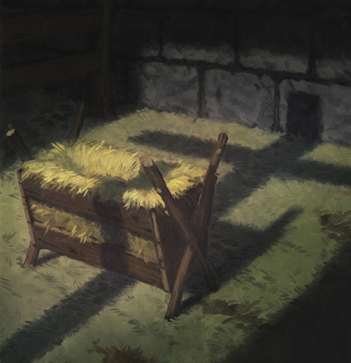Yet if his majesty, our sovereign lord,
Should of his own accord,
Friendly himself invite,
And say, "I'll be your guest tomorrow night,"
 How should we stir ourselves, call and command
How should we stir ourselves, call and commandAll hands to work! "Let no man idle stand.
Set me fine Spanish tables in the hall,
See they be fitted all;
Let there be room to eat,
And order taken that there want no meat.
See every sconce and candlestick made bright,
That without tapers they may give light.
Look to the presence: are the carpets spread,
The dais o'er the head,
The cushions in the chair,
And all the candles lighted on the stair?
Perfume the chambers, and in any case
Let each man give attendance to his place."
Thus if the king were coming would we do,
And 'twere good reason too;
For 'tis a duteous thing
To show all honor to an earthly king,
And, after all our travail and our cost,
So he be pleased, to think no labor lost.
But at the coming of the King of Heaven
All's set at six and seven:
We wallow in our sin;
Christ cannot find a chamber in the inn.
We entertain him always like a stranger,
And, as at first, still lodge him in the manger.
